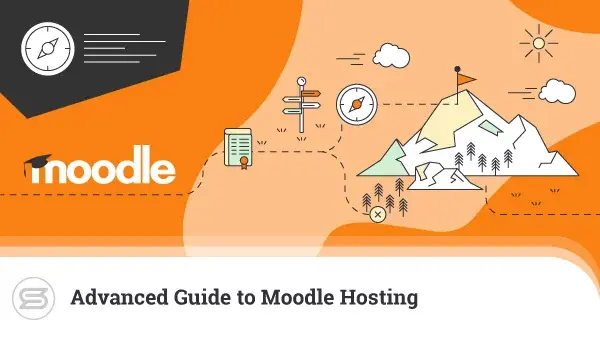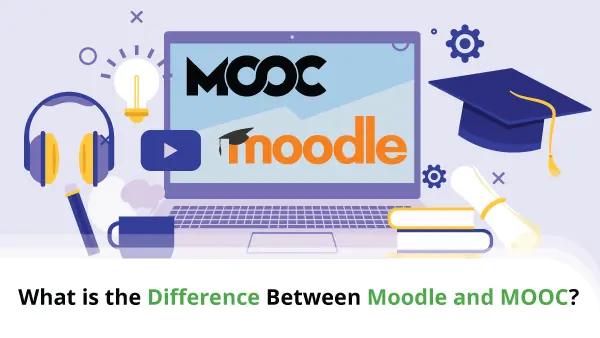In today’s digital age, the use of Learning Management Systems (LMS) has become increasingly popular among educators and institutions worldwide. LMS platforms provide a centralized location for teachers and students to manage course content, assess grades, and communicate with each other.
Moodle and Blackboard are two of the most well-known LMS platforms available today. Both offer unique features and functionalities, making it challenging for educators to choose the right one for their needs.
In this head-to-head comparison, we will explore the similarities and differences between Moodle and Blackboard to help you decide which platform is the right fit for you.
Introducing Moodle
Moodle is an open-source Learning Management System (LMS) that has been on the market since 2002. It was developed by Martin Dougiamas, who aimed to create a platform that prioritized collaborative and interactive learning.
The LMS is highly customizable, making it popular among educational institutions of all sizes. It can be used to create various courses, from traditional classroom-based courses to fully online ones.
Moodle also offers a range of features, such as forums, quizzes, assignments, and messaging tools to facilitate communication and collaboration between teachers and students. Additionally, the LMS can be used as a mobile app, allowing students to access course content and participate in discussions from their mobile devices.
Introducing Blackboard
Blackboard is another popular LMS platform, in existence since 1997. It was developed by Michael Chasen and Matthew Pittinsky and has since been used by millions of students and educators worldwide.
Blackboard offers a variety of tools for content creation, assessments, communication, and analytics. It can be used to create online, hybrid, or traditional classroom-based courses.
Blackboard also offers a mobile app that allows students utilize the LMS through their mobile devices. In addition, Blackboard provides a range of third-party integrations, making it easy to combine with other educational tools and platforms.
Moodle vs Blackboard – Head-to-Head Comparison
While both Moodle and Blackboard are widely used Learning Management Systems, there are significant differences between the two platforms.
Choosing the suitable LMS can make a significant difference in the success of your online or blended learning program. In this section, we will compare Moodle and Blackboard head-to-head.
Let’s take a look:
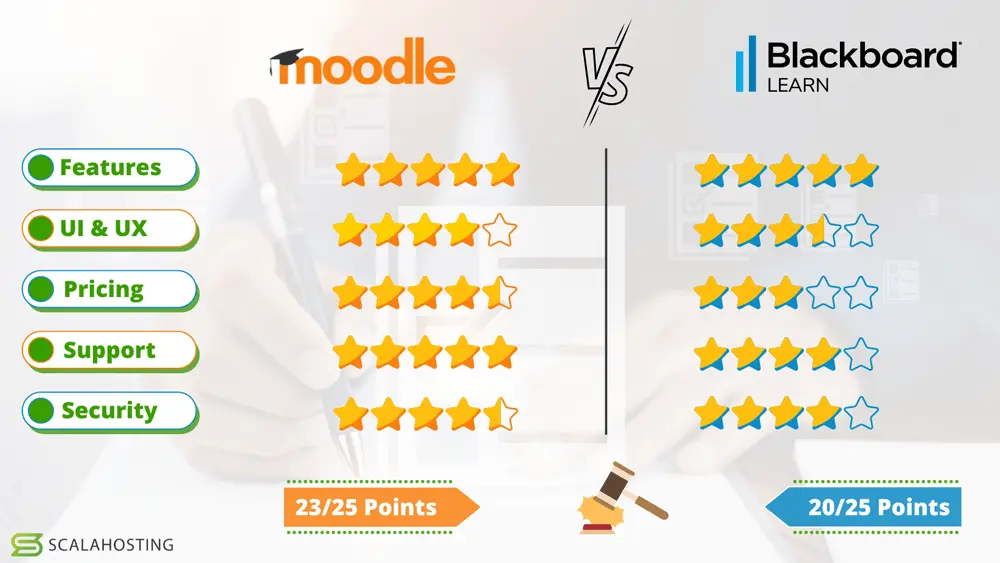
Features
Moodle and Blackboard offer a range of similar features to facilitate online learning, including:
- Course creation tools: Both platforms come with handy tools for creating and organizing your courses, such as syllabi, lesson plans, and multimedia resources.
- Assessment and grading tools: Both LMS allow instructors to create quizzes, assignments, and exams. They are also able to track student progress and performance.
- Communication and collaboration tools: Include means for facilitating discussions, messaging, and group work, such as forums, chat rooms, and wikis.
- Integration with other tools: Both platforms can integrate with other software tools, such as web conferencing or plagiarism detection software.
However, there are also some key differences between Moodle and Blackboard. For example:
- Open-source flexibility: Moodle is known for its open-source flexibility, allowing institutions to customize the platform to meet their needs. This can be an advantage for institutions that are working on a budget.
- Mobile support: Moodle’s dedicated mobile app provides a seamless mobile learning experience. While Blackboard also offers mobile support, some users have reported that the mobile app is not as user-friendly as Moodle’s.
User Interface and Experience
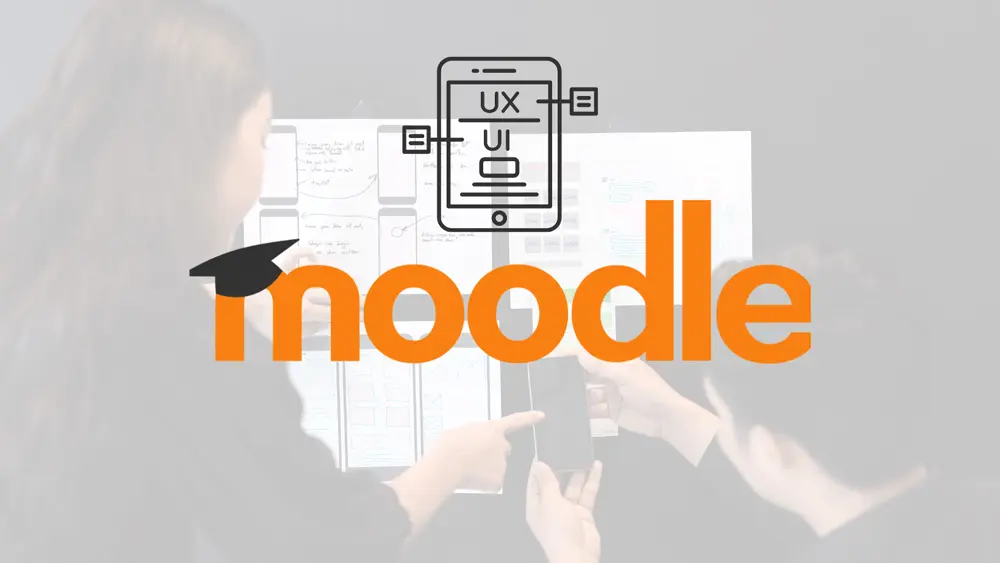
Moodle is highly customizable and flexible. It offers a clean and simple user interface with an intuitive navigation system that makes it easy for users to access the needed features.
Moodle’s user experience is developed to be student-centric, which means that it focuses on providing students with a seamless learning experience.
Some of the Most Essential Advantages of Moodle’s UX & UI
- Customizable – Moodle offers many themes that can be used to tailor the user interface to the institution’s needs.
- Student-centered – The LMS is designed to prioritize the needs and preferences of students.
- Intuitive – Easy to use even for users unfamiliar with the platform.
- Responsive – You can access and use Moodle on various devices, including desktops, laptops, and mobile phones.

On the other hand, Blackboard is a commercial learning management system with a more complex user interface. Still, it offers even more customization options and advanced features than Moodle.
Blackboard’s user experience is designed to be instructor-centric, which means that it focuses on providing instructors with the tools they need to manage and deliver their courses effectively.
Some of the Most Essential Advantages of Blackboard’s UX & UI:
- Comprehensive – Blackboard offers broad features and tools to support teaching and learning.
- Instructor-centered – It prioritizes the needs and preferences of instructors.
- Customizable – Offers numerous customizable themes to improve the experience and meet most organizations’ individual requirements.
Ultimately, the choice between Moodle and Blackboard will depend on the specific needs of the user/institution. Both platforms have their strengths and weaknesses in UI & UX, and it’s essential to evaluate them based on the particular features and capabilities that are important to you.
Pricing and Licensing
Moodle is an open-source platform that is free to download, use, and modify. However, if you want to host Moodle on your server, you will need to consider the web hosting and maintenance costs.
The popular LMS also offers a cloud-hosted version called MoodleCloud, which charges a monthly fee based on the number of users on your platform.
Moodle is generally more cost-effective than Blackboard. Its open-source nature means no license fees are involved.
In comparison, Blackboard is proprietary software that requires a license. The pricing for Blackboard is based on the number of users, the hosting model (self-hosted or cloud-hosted), and the features included in the package.
Blackboard Learn pricing starts at $9500/year. It does not offer a free version, but you can take advantage of a free trial.

Support and Resources
When it comes to learning management systems, it’s essential to have access to quality support and resources to ensure that users can get the most out of the platform.
As an open-source LMS, Moodle has a vast online community of users and developers that provide support and resources. It offers free online documentation, forums, and a knowledge base to help users troubleshoot issues and find answers to their questions.
Additionally, Moodle users can access a range of free plugins and add-ons that can enhance the platform’s functionality.
Blackboard, on the other hand, is a proprietary platform that offers a range of paid support and training services, including a dedicated support team, online courses, and professional development workshops. The app also gives users access to a knowledge base, user guides, and a community forum, though a bit more limited.
In Comparison:
Community: Moodle has a large and active online community, which provides users a wealth of resources and support. Blackboard has a smaller community due to its proprietary nature.
Documentation: Moodle offers comprehensive documentation, including user guides, video tutorials, and a knowledge base. Blackboard also provides users access to a knowledge base, but its documentation is not as extensive as Moodle’s.
Support: Blackboard provides users with a dedicated support team, which is available 24/7. Moodle, on the other hand, relies on its community (and your hosting provider) for app support.
Security and Privacy
In terms of security, both Moodle and Blackboard offer a range of features, including regular updates, data encryption, data collection disabling and user authentication.
This allows users to customize their security settings and permissions to ensure that only authorized users can access sensitive information.
In Comparison:
- Open-Source: Moodle’s users can access the source code and fully customize their security settings. On the other hand, Blackboard’s users have no control over that aspect and can only rely on the company developers.
- Customizability: Moodle is highly customizable, and users can configure their security settings to meet their specific needs. Blackboard, however, has limited customization options, and users must rely on the platform’s default security settings.
- Data Privacy: Both Moodle and Blackboard offer a range of privacy settings to protect user data. Moodle allows users to control who can access their information, while Blackboard allows them to disable data collection entirely.
Improving Your Moodle Experience with ScalaHosting
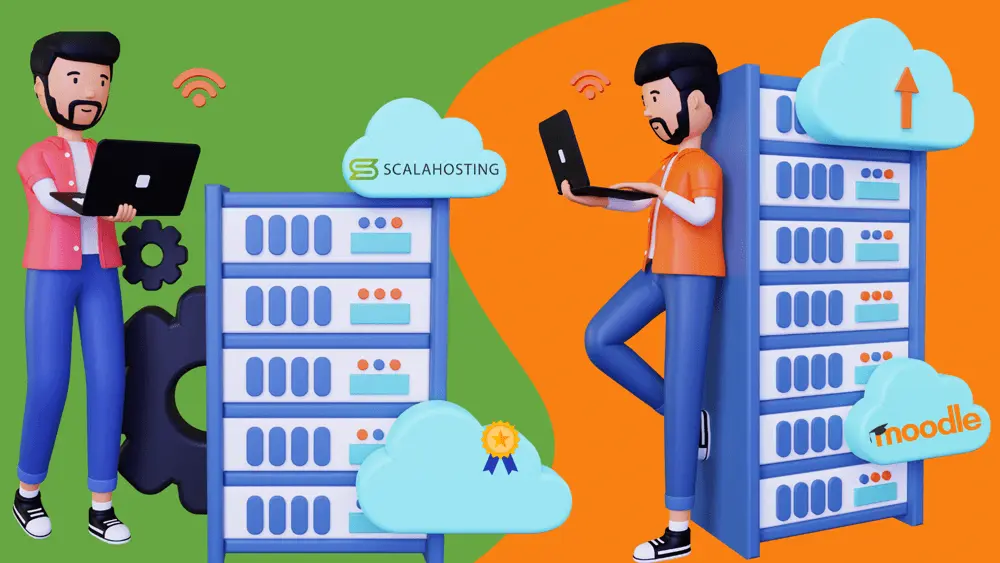
ScalaHosting is a leading web hosting provider known for its reliable and affordable hosting benefits. Our VPS services are optimized for Moodle, ensuring your online learning platform runs smoothly and efficiently.
With many years of Moodle experience behind our backs, ScalaHosting is committed to providing the best support and security for your Moodle installation at any time.
A commitment to security
At ScalaHosting, we understand that website security is of the utmost importance. That’s why we developed SShield, an essential part of our unique SPanel platform.
SShield streamlines web hosting management by providing a comprehensive security solution that protects your website against cyber threats and attacks.
It is a unique security system that uses artificial intelligence to protect your website. Unlike similar solutions that rely on virus databases or hashes, SShield utilizes machine learning to inspect the code and identify legitimate traffic.
The more SShield detects potentially harmful traffic – the better it becomes at identifying threats.
What else do we offer?
Thanks to our cloud VPS solutions, we can ensure your uninterrupted uptime, so your website remains accessible to your audience even during peak traffic. Our round-the-clock monitoring and maintenance services ensure potential issues are detected and addressed promptly
With ScalaHosting, you can rest assured that your website is safe and your valuable data is always protected.
You want to learn more about your experience with us?
If you want to ensure the seamless functioning of your business and protect your Moodle website – don’t hesitate to reach out to the Scala support team today to learn more about how we can help!


Takeaway: Moodle vs Blackboard
In this head-to-head comparison, we explored the similarities and differences between Moodle and Blackboard. Both platforms offer a range of features and functionality to facilitate online and blended learning, but they differ in their approach to customization, pricing, and user interface.
Choosing the right Learning Management System depends on your specific needs and preferences. Moodle is a good option for schools and universities that prioritize flexibility and customization. At the same time, Blackboard may be a better fit for those who are looking for ease of use and integration with third-party tools.
No matter which platform you choose, investing time and resources in training and support is essential to ensure a successful LMS implementation. With the right platform in place, you can create compelling online learning experiences for all your students.
Frequently Asked Questions
Q: What are Moodle and Blackboard, and what are they used for?
A: Moodle and Blackboard are Learning Management Systems (LMS) for online and blended learning. Moodle is open-source and customizable, while Blackboard is proprietary and offers a variety of features. Both platforms allow for the creation of various courses, including online and traditional classroom-based courses.
Q: Can Moodle and Blackboard be integrated with other systems or platforms?
A: Yes, both Moodle and Blackboard can be paired with other systems or platforms. Blackboard offers a range of third-party integrations, making it easy to connect with other educational tools and platforms.
Moodle also supports various integrations with third-party tools, including video conferencing, plagiarism detection, and student information systems. This allows educators to streamline workflows and provide students with a more cohesive learning experience.
Q: Which platform is more user-friendly – Moodle or Blackboard?
A: In terms of user-friendliness, it ultimately depends on the individual user’s preferences and familiarity with each platform. Some may find Moodle’s interface and navigation more intuitive, while others may prefer Blackboard because of its slick design and layouts.
At the end of the day, both platforms offer training and support resources to help users become more proficient in using the software.

